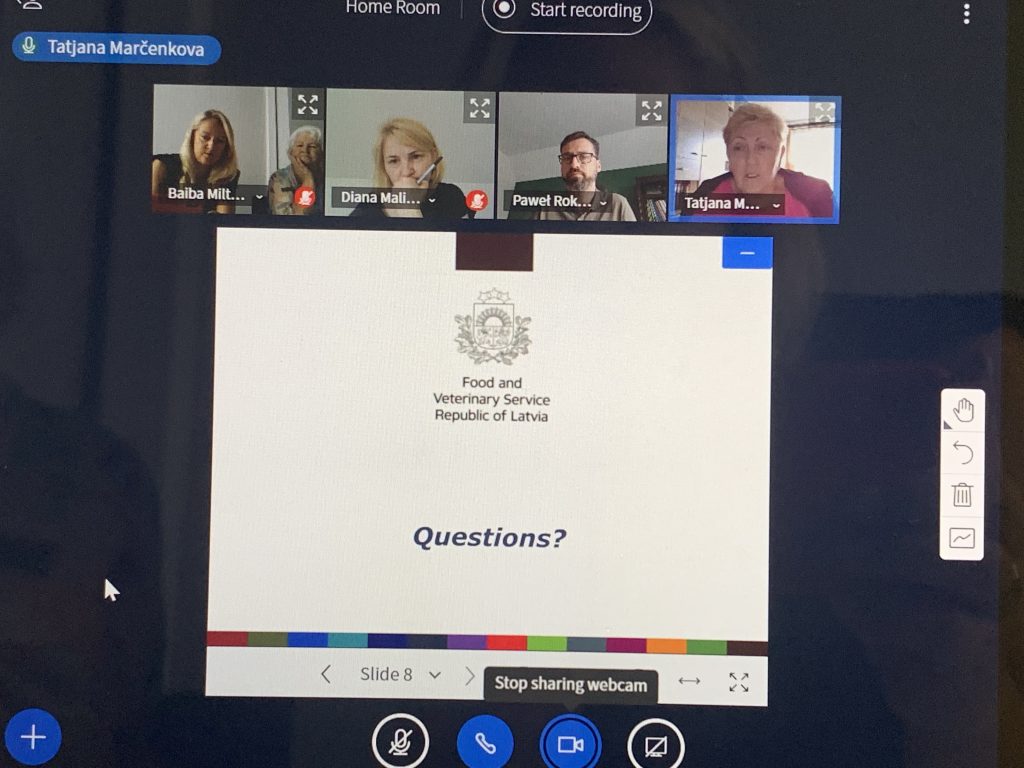The National Consumer Confederation (Lithuania), together with the Latvian National Consumer Protection Association, the Polish Consumer Foundation and the Polish National Institute for Horticultural Research (InHort), is implementing the international project „The same but different” and publishes survey data.
Project summary
Consumer organizations in the Baltic region must be strengthened and given the opportunity to effectively represent the interests of consumers who need independent, reliable information about goods and services in the single market. Ignoring these needs means that the single market is virtually non-existent: there are only better and less informed consumers, some of whom experience double quality, and there are organizations that have the means to monitor the market, identify unfair practices or test behavior, and those that fight for survival, as in the Baltic region.
According to the Consumer Terms Scoreboard 2017. According to the data, there is a huge difference between the distribution of public funds to consumer organizations (POs) in different EU countries. The Baltic States are among the least funding consumer organizations – Latvia – 5, Lithuania – 13, Poland – 16 euros per 1,000 inhabitants, while very strong consumer organizations often receive relatively much, much more, such as. in countries such as Germany, € 1,020 per 1,000 inhabitants or Denmark, € 429.
This call for proposals from the Commission is strictly related to our main problems and needs. We are a consumer organization in the Baltic region, represented in the European Consumer Consultative Group. We are weak but potential and willing to take on challenges. The Polish Consumer Foundation (VF), the lead applicant, is a leading Polish consumer organization; VF has been running the largest consumer consulting project in the country for 5 years, with an annual budget of about 250,000 euros. VF has already started testing activities this year. The development of these operations is part of a long-term business strategy. Thus, it is the only large consumer organization in Poland and the Baltic region with such capabilities and a ready-made strategy.
Due to the large funding gap in consumer organizations in the Baltic region compared to other EU countries, consumers do not have access to independent comparative product research and are vulnerable to misleading brand strategies, including double quality. This pilot project will strengthen consumer organizations, enable them to carry out food research and empower consumers by providing them with reliable information.
The coffee and tea supplied in the Baltic markets will be studied and compared with the German market. Misleading brand strategies and dual product quality will be identified, communicated to national authorities and the results made available to consumers, giving them a choice based on reliable information.
Work packages include:
- Project management and coordination – this will allow for the successful completion of all activities
- Establishment of a network of consumer organizations in the Baltic region – in order to exchange good practices and facilitate cross-border co-operation.
- The development and implementation of food research will allow reliable methods for product research and comparison based on EU-harmonized research methodologies, in particular for dual quality.
- Development of an IT tool to report double quality and misleading branding
- Awareness raising and promotion will disseminate the results to relevant stakeholders and the general public
The project will strengthen consumer organizations by enabling them to conduct food research, identify and report misleading brand strategies, including dual quality. A simple IT tool to share knowledge with consumers and identify cases of fraud will be developed and tested, and recommendations for its future improvement will be provided.
*** *** ***
Research results on tea and coffee during the project
https://vartotojai.eu/naujienos/demesio-pesticidu-likuciai-juodojoje-arbatoje/
https://vartotojai.eu/naujienos/juodojoje-arbatoje-maiseliuose-rasta-didele-svino-koncentracija/
https://vartotojai.eu/naujienos/kava-ir-arbata-kokia-ju-kokybe/
*** *** ***
Coffee research results
The same results for printing
*** *** ***
Study visits
National Consumer Confederation (Lithuania)
Consumer Fund (Poland)
Inhort (Poland)
Latvian Consumers Association (Latvia).
*** *** ***
Presentations of project participants’ activities
*** *** ***
Presentation of the activities of the Polish National Horticultural Research Institute (InHort)
*** *** ***
On July 1, 2021, the Latvian National Association of Consumer Protection LPIAA presented a video conference on the focus on food quality supervision and control in the Republic of Latvia prepared by the Food and Veterinary Service of the Republic of Latvia, the Latvian University of Life Sciences and Technology and the Latvian National Association for Consumer Protection.
We present the reports presented during the conference
and a few moments of the conference


